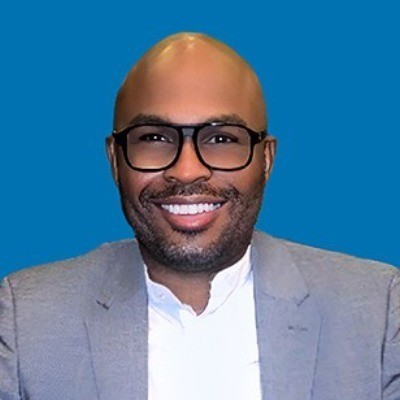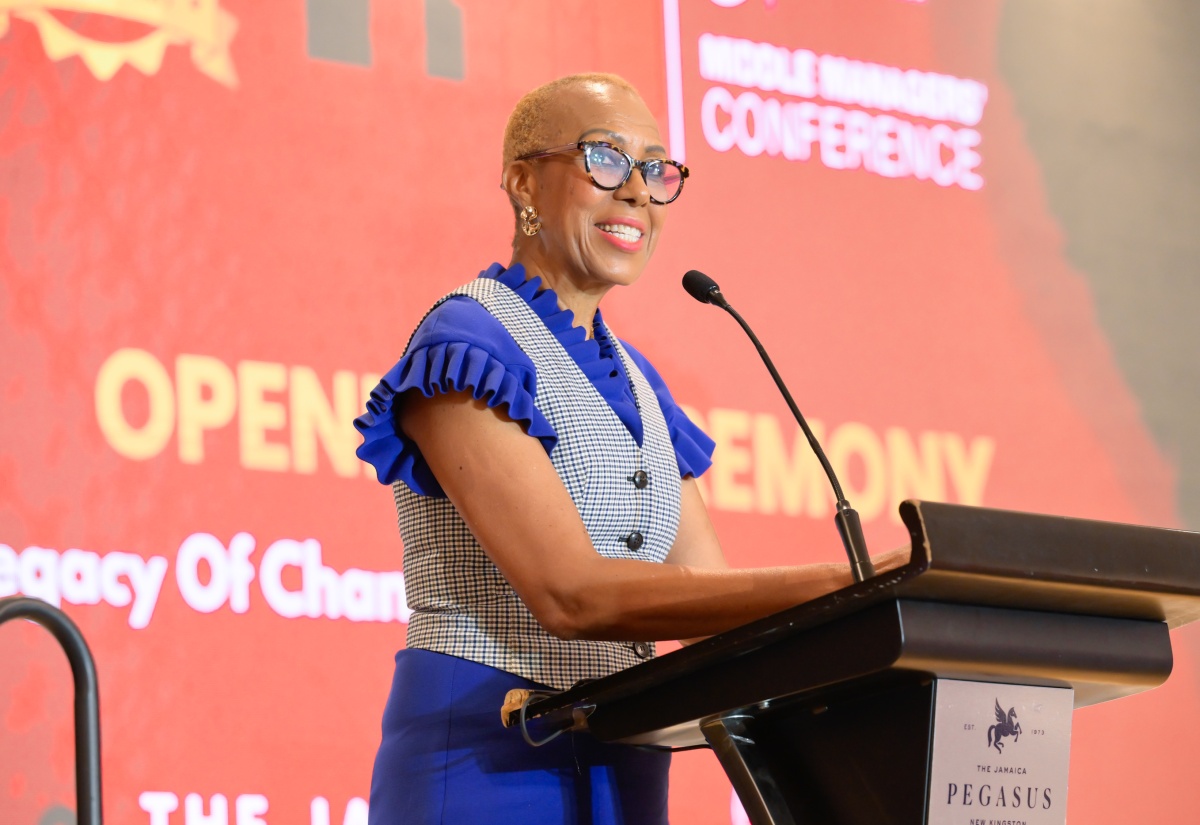Introduction
Let me first thank the organisers for the invitation and opportunity to address this august gathering.
The Flow family extends hearty congratulations to those well deserving members of the industry and those outstanding students from the UWI, UTECH and the Caribbean Maritime University who will receive awards this evening. I also want to commend the board and members of the Jamaica Institution of Engineers for the work you have done in this country over the years, setting the standards for engineering design and monitoring their implementation. You are part of the reason we can feel safe as we go about our daily business.
Ladies and gentlemen, there is one fact that every one of us in this room can all agree on, and that is…the world is not the same as it was 20 years ago.
Indeed, the world has evolved and advanced through several Industrial Revolutions taking us to where we are now – the Fourth Industrial Revolution – the age of Artificial Intelligence! The World Economic Forum fitly coined the term in response to the change which they saw coming in how people and the world would operate because of artificial intelligence.
We have shifted from the Third Industrial Revolution – which was centered around Information Technology and Digitization – where applications were about people or IT processes communicating.
Through improved systems and networks globally, we have seen groundbreaking technology, unprecedented processing power and speed, massive storage capacity, and data being collected and harnessed like never before.
Ladies and gentlemen – this fourth wave of industrial development characterized by automation, mobile computing and artificial intelligence, is no longer a futuristic concept, it is our present reality, and is set to significantly impact our lives and work, whether we accept it or not!
Here are a few examples of the change in action:
Voice activated “Digital assistants” from Amazon (Alexa), Apple (Siri), Google (Google Assistant) or Microsoft (Cortana) are in millions of households… seemingly an almost overnight sensation.
New Age companies – Uber, AirBnb, Netflix, and Alibaba – are all service providers that own no actual inventory.
Even logistics providers are utilising increased technology to remain relevant, with DHL testing the use of augmented reality glasses among its employees and UPS looking to provide 3D printing services from its stores. Amazon is also testing out delivery drones, robotics for goods handling, and new apps to optimize asset-light delivery services in major cities.
In China, Amazon does some of its basic assembly and packaging via Artificial Intelligence – enabled robots at a cost of less than US$8 per day.
To quote from Professor Klaus Schwab, Founder and Executive Chairman of the World Economic Forum, “There has never been a greater time of promise, or a greater time of peril.”
The reality is, ladies and gentlemen, companies and industries that don’t adapt with the new technology, struggle, and at worse… fail. The change is inevitable…not optional, and will require a shift in mindset. The proverbial writing is on the wall!
We only need to look at some examples of global organizations that are now struggling because they failed to take advantage of the industrial development:
Nokia – which despite owning 30 per cent of the world’s mobile patents (GSM) finds itself struggling to stay relevant; Kodak invented the digital camera technology, but failed to capitalize on it; General Motors – produced the first commercial electric car over 20 years ago, stopped its rollout, and now finds itself trying to catch up with the Japanese hybrids. Bookstores, the music industry and newspapers – all of which were the giants of their time, now find themselves struggling to avoid extinction.
And while some professional jobs face the risk of extinction within the next 20 years, the Fourth Industrial Revolution provides new opportunities for economic, social and personal development by empowering individuals and communities. This development will, however, require upgrading of skill sets and training to prepare individuals to adapt to the new environment.
Educational institutions at the secondary and tertiary levels that have not yet started, are also required to begin preparing students for the changing world of work.
The technological shift will enable workers on the front line, on the road and in the field to make smarter decisions, solve tougher problems and do their jobs better.
So, in all of this, where is Jamaica now and where are we going?
I am heartened that Jamaica has begun the conversation, and is among countries that have seen it fit to make provisions for the inevitable change heralded
by the Fourth Industrial Revolution.
Already, the country is making strides through the establishment of an Information Communication Technology (ICT) Sector Plan which is grounded in the premise that the use of ICTs is critical in ensuring that Jamaica achieves its goal of developed country status by 2030.
The plan outlines the key linkages between adoption and application of ICTs to the growth and/or success of other sectors such as education, governance and administration, science, technology and innovation and the cultural/creative industries.
To date, the country has developed the animation sector; and designed a secure Government of Jamaica private telecommunication network to connect all Ministries, Departments and Agencies, provide voice, data and video services. The network when launched, is expected to reduce overall telecommunication costs for the Government; improve communication across ministries and agencies; and reduce the transaction costs associated with the provision of public services and information. The Government has also developed and strengthened national ICT policy, strategy, and legislation.
A unique opportunity awaits Jamaica to harness the repository of skills that already exist – honouring the past and preserving a culture, even while embracing a technology-based future.
Ladies and gentlemen, as the leading telecommunications provider in the region, FLOW Jamaica is mindful of its responsibility in helping to prepare the nation for the technological changes.
Central to that preparation is the push to deepen internet penetration throughout the island, and into every household in Jamaica. FLOW is also making mobile data more accessible to all by increasing affordability. Additionally, our new unlimited mobile plan – FLOW Platinum, ensures customers are always connected with 15 GB of data access at blazing LTE speeds via our superior network.
We have made investments to ensure we are laying the backbone for this internet penetration, which means each and every part of the island, rural and urban, is included. In 2016, that investment saw us bringing high-speed internet of a minimum of 25MB/s speeds to 150 communities. We are rolling out those internet speeds for another 220 communities by the end of 2017, making sure we continue deepening penetration. In 2018, we seek to make further investments to enhance our technology. We were the first company to bring mobile to Jamaica and have seen the gradual progression of technology – moving from 2G to 3G and 4G. In 2016, we launched LTE for the first time and we are now making sure we can offer LTE speeds countrywide.
We will also continue the partnership with the Government through their Universal Service Fund to bring public access points into schools, libraries and post offices across the island. Through the FLOW Foundation, we are providing additional community access points at churches and community centres.
Ladies and gentlemen, if we are to succeed as a nation in harnessing the opportunities that exist with the Fourth Industrial Revolution, then we must engage
Micro, Small and Medium-sized Enterprises (MSMEs). They form an important part of our heritage, are a critical driver of growth and development, and can play an even more significant role through strategic partnerships, as we embrace the wave of industrial change.
FLOW is aligned on Vison 2030 and remains committed to supporting the Government in achieving these goals. Our work in the telecoms sector is directly related to the goal of making Jamaica prosperous, thereby creating a technology-enabled society.
We are also supporting the Government’s 5 in 4 Economic Growth Programme – a key pillar for moving the nation forward. Access to, and leveraging the best technology, are key anchors for the programme, and we view this as a major area of support for the national agenda.
How does FLOW Support the BPO Sector?
The concept of the Fourth Industrial Revolution is already evident in FLOW Jamaica’s operations as we have been focused on transforming the customer experience with our products and services to meet expectations.
Ask FLOW – an artificial intelligence system to be rolled out shortly, allows customer service agents to provide information in quick time and ensure consistency of information provided to customer queries. This feature is in addition to our FLOW 6 IVR – the new Interactive Voice Response system already in operation at FLOW’s two Contact Centres in the Corporate Area and in Montego Bay.
We are mindful of those customers who are more hesitant to adapt to the technology, and systems have been put in place to also address their needs.
At FLOW, we are constantly seeking ways to enhance our products and services by staying on top of the technological changes and resulting demands. This is not the time for inaction…and so our thrust is to keep pushing forward, looking for the best opportunities in this age to better serve our customers.
Ladies and gentlemen, as I close, it is clear that technological change is inevitable with the Fourth Industrial Revolution, which is set to transform economies like never before. Action is therefore required on the part of every organization to preserve their relevance in an age of change. One thing is sure, while transformation will occur in different stages across the globe, no market will be spared the effects of the approaching tidal wave.
Thank you.
I delivered this address on November 25th, 2017 to the Jamaica Institution of Engineers Annual Awards Dinner and Gala Reception under the theme: “Engineering Our Future Through Celebrating Our Heritage”
Stephen Price
Country Manager – FLOW and C&W Business (Jamaica)


 Businessuite Markets4 weeks ago
Businessuite Markets4 weeks ago
 Businessuite News242 weeks ago
Businessuite News242 weeks ago
 Businessuite News241 week ago
Businessuite News241 week ago
 Corporate Feature2 weeks ago
Corporate Feature2 weeks ago
 Businessuite News24 International2 weeks ago
Businessuite News24 International2 weeks ago
 Businessuite Markets1 week ago
Businessuite Markets1 week ago
 Businessuite Women2 weeks ago
Businessuite Women2 weeks ago
 Business Insights4 days ago
Business Insights4 days ago











 When Mr. Tyrone Wilson, Chairman, President, and CEO of Kintyre Holdings (JA) Limited, stepped into the additional role of Chief Executive Officer at Visual Vibe—alongside his existing portfolio—industry observers took note. His move, following the resignation of Chief Investment Officer Andrew Wildish, now consolidates strategic, operational, and governance control under one leader across the two connected companies.
When Mr. Tyrone Wilson, Chairman, President, and CEO of Kintyre Holdings (JA) Limited, stepped into the additional role of Chief Executive Officer at Visual Vibe—alongside his existing portfolio—industry observers took note. His move, following the resignation of Chief Investment Officer Andrew Wildish, now consolidates strategic, operational, and governance control under one leader across the two connected companies.
 1. Time Becomes Your Most Valuable Currency
1. Time Becomes Your Most Valuable Currency










